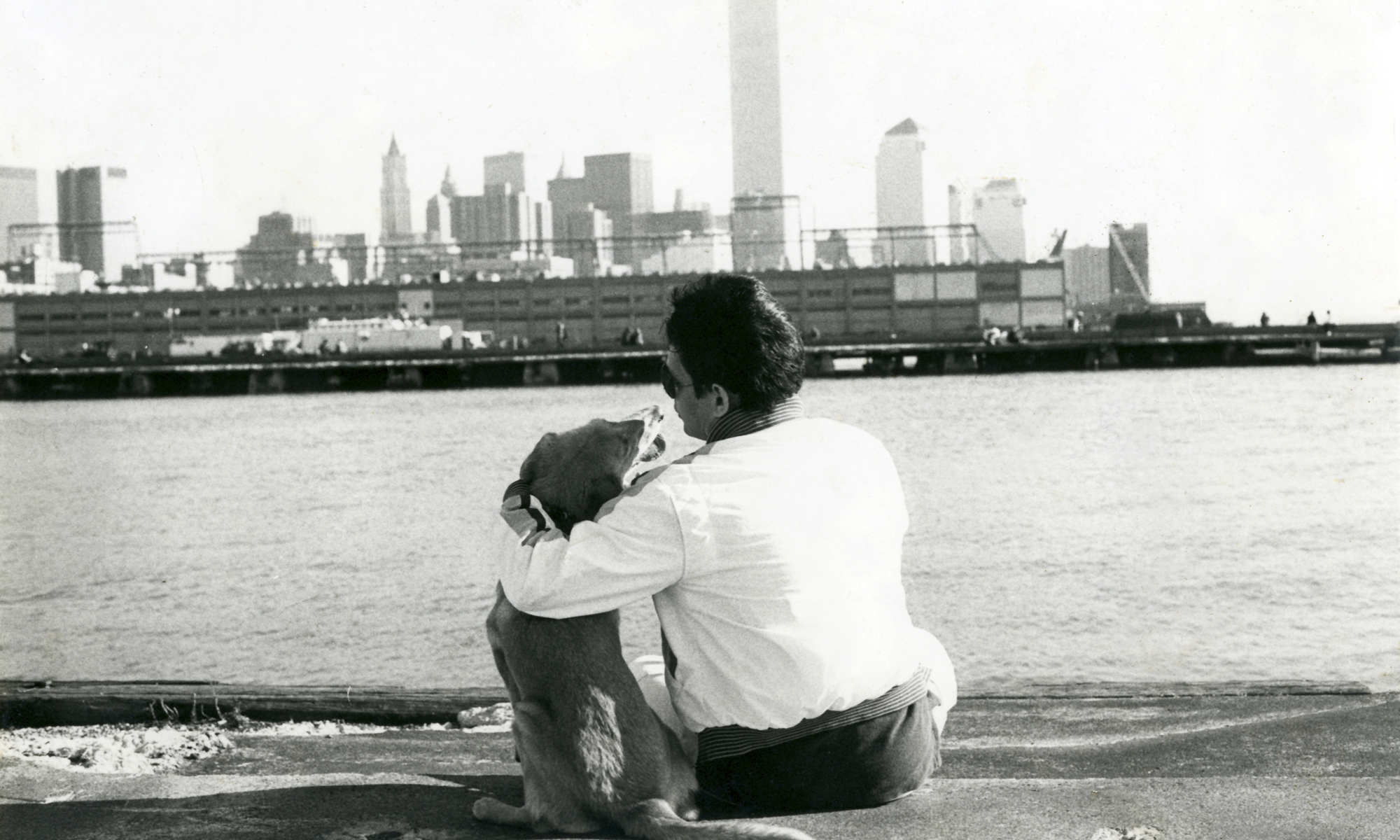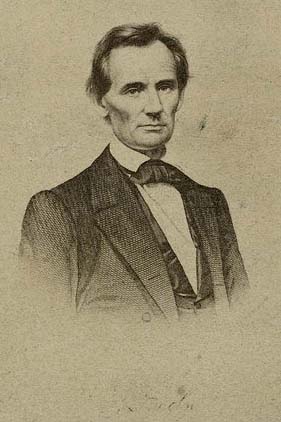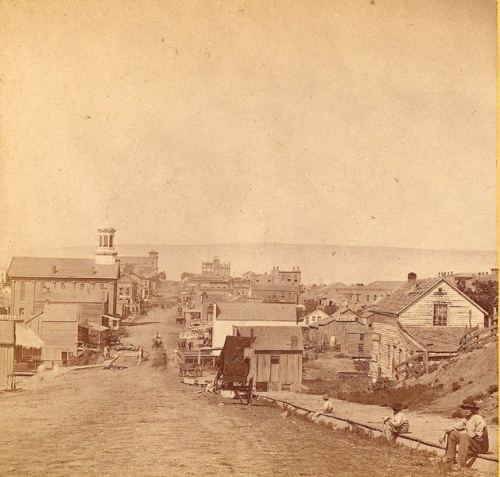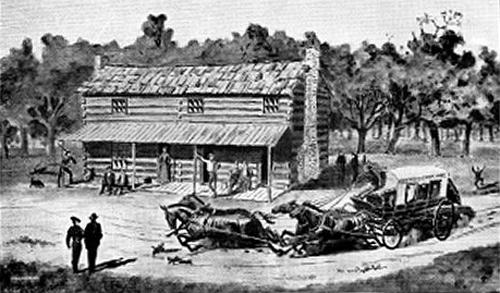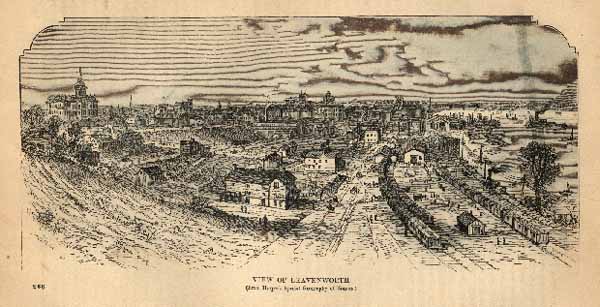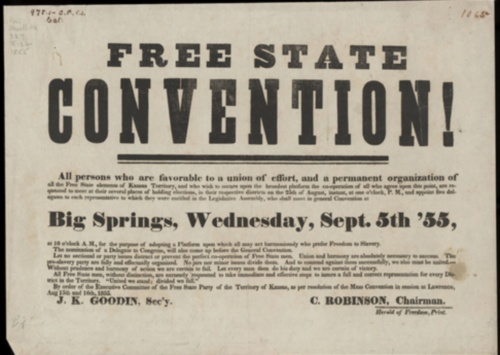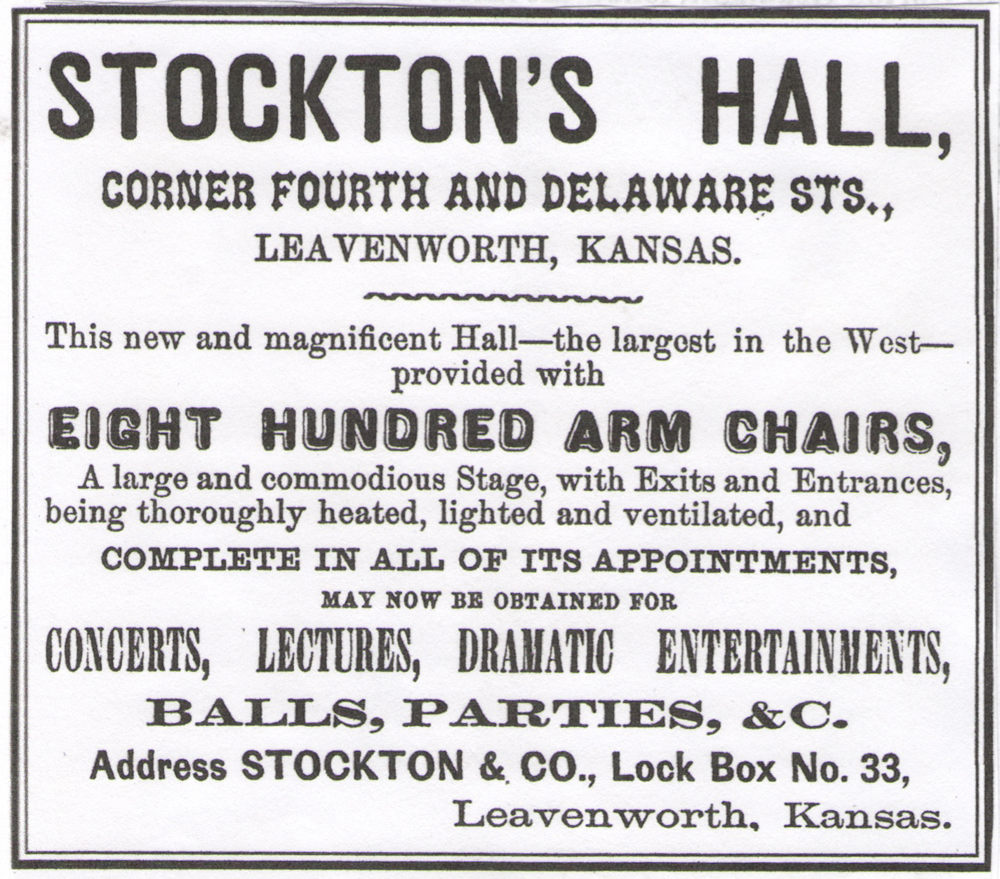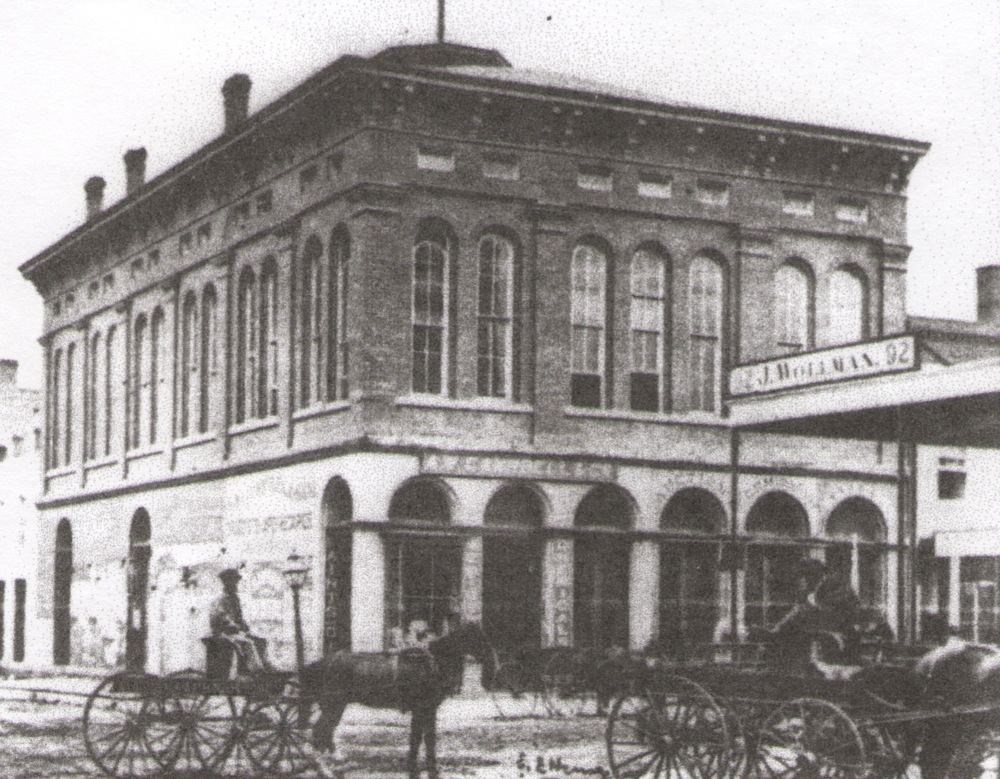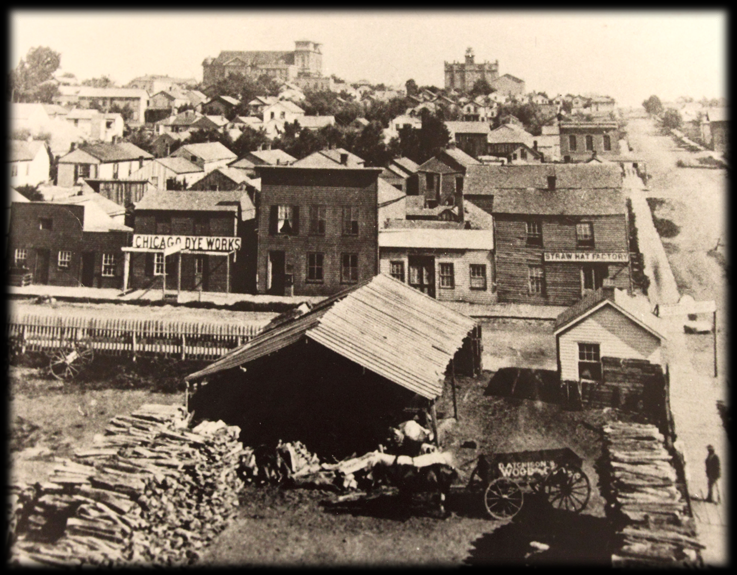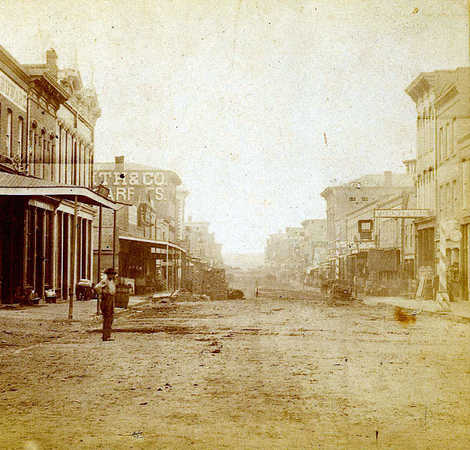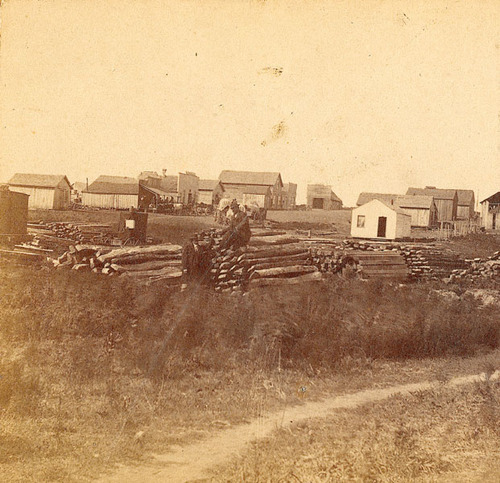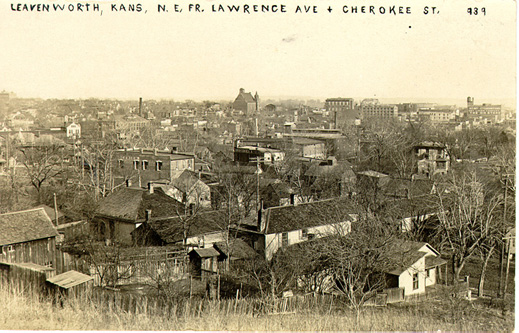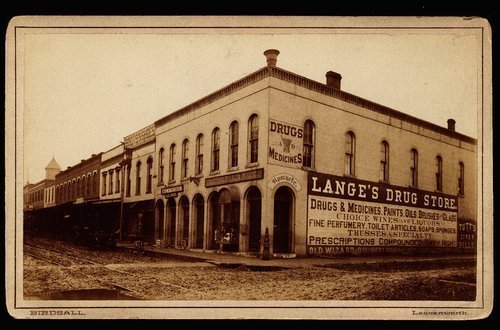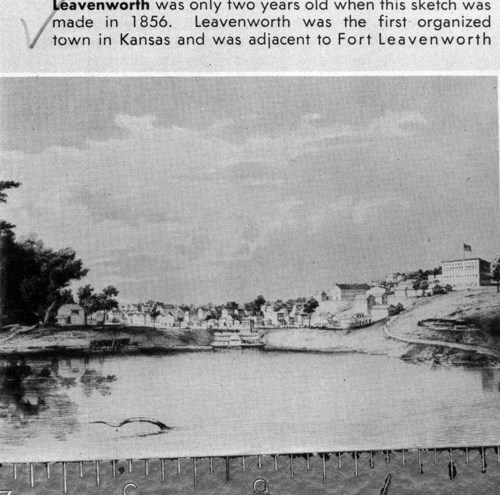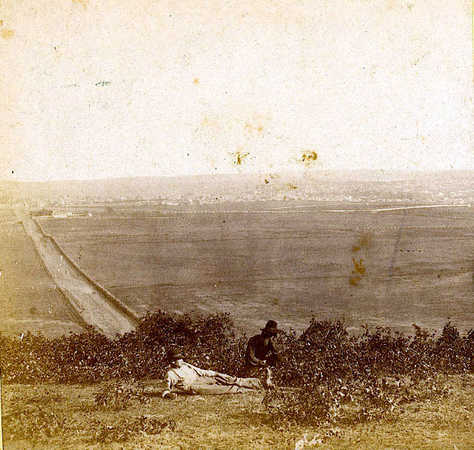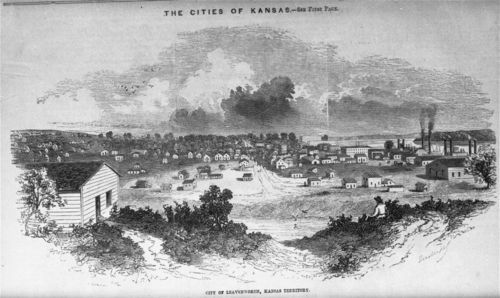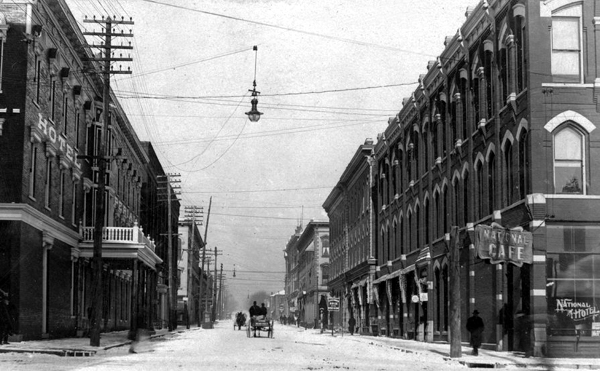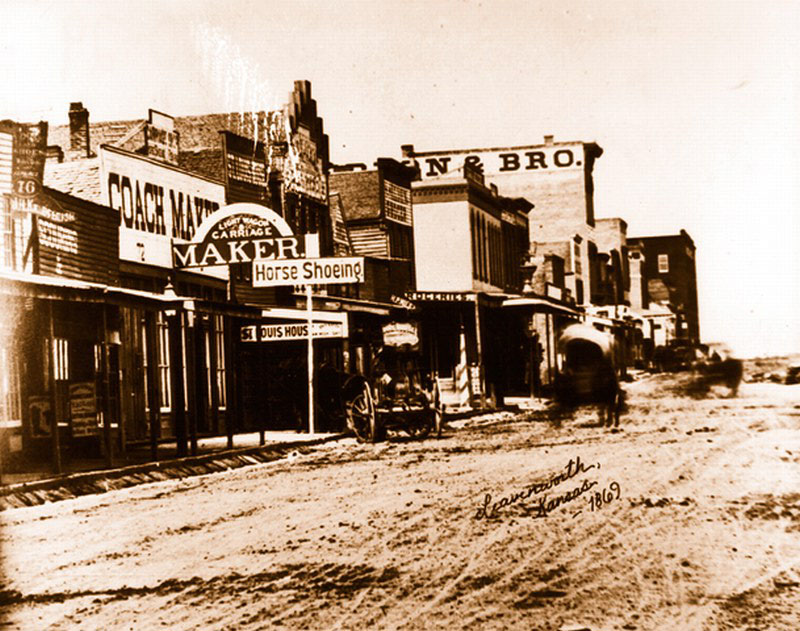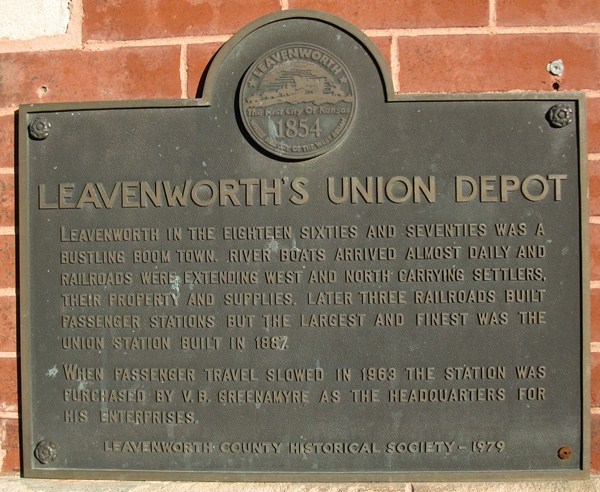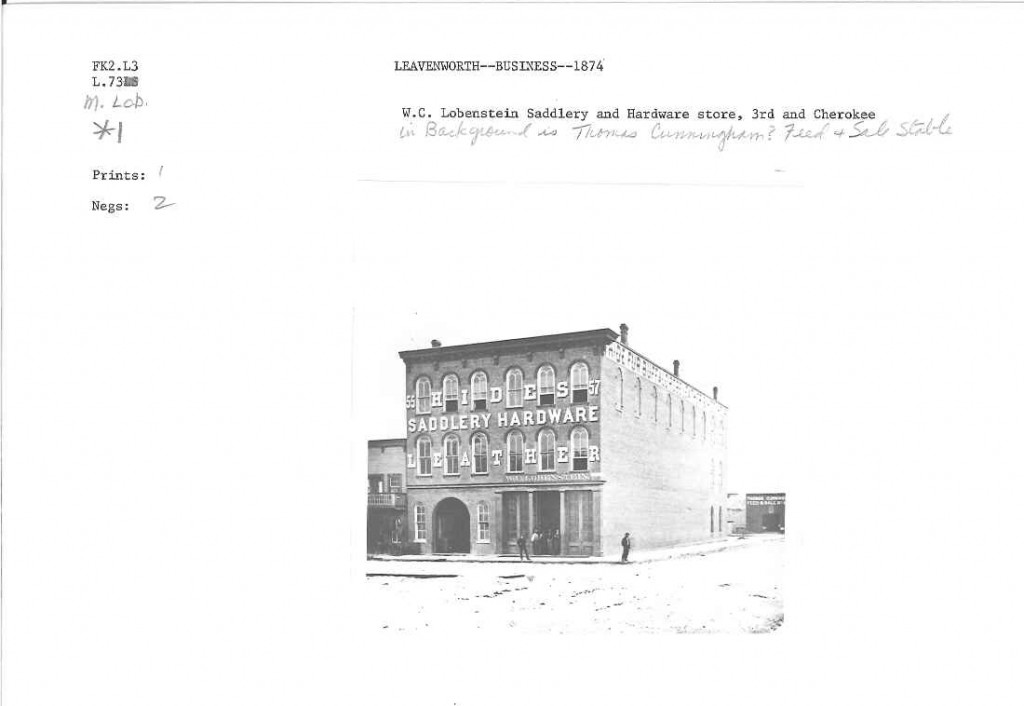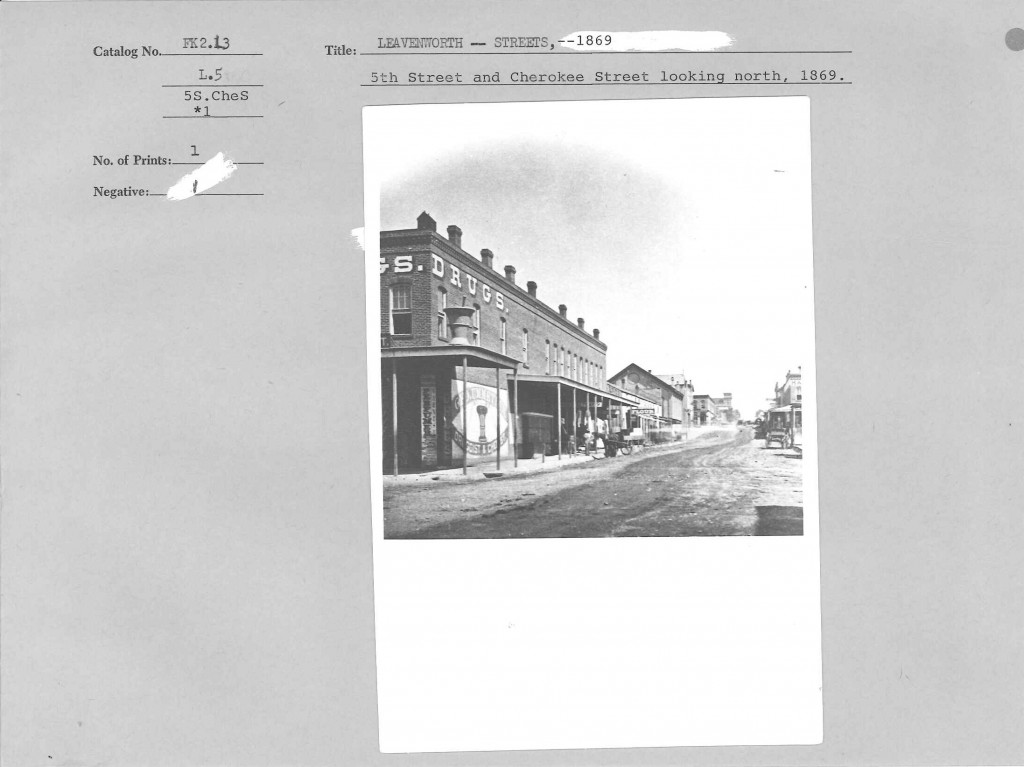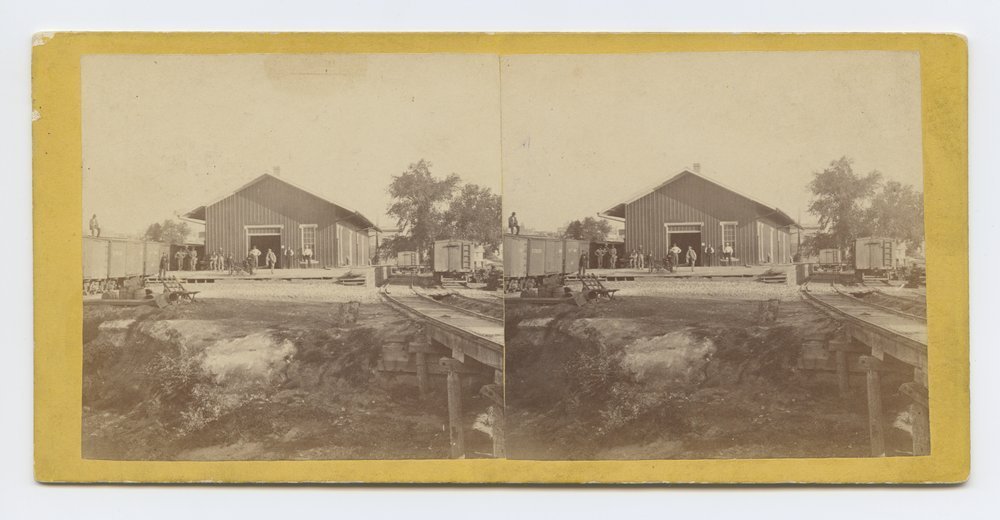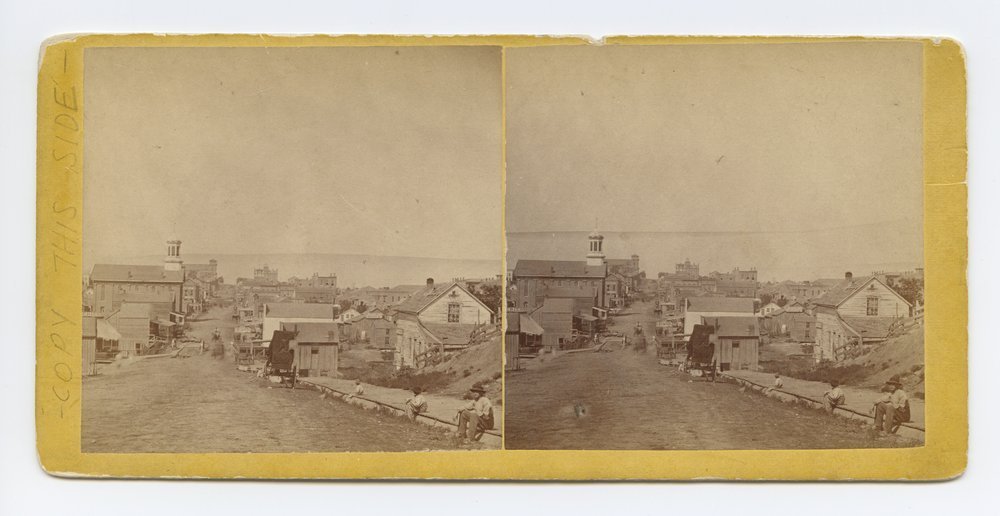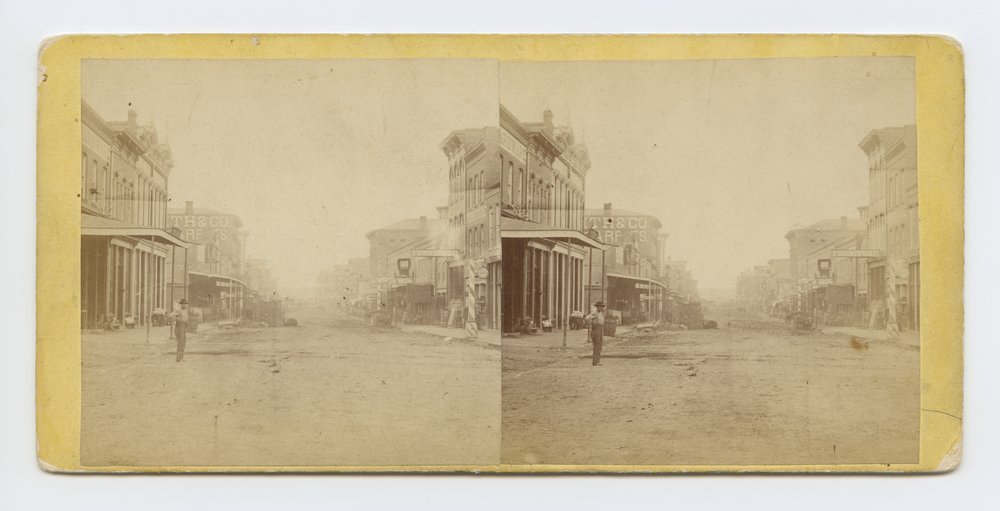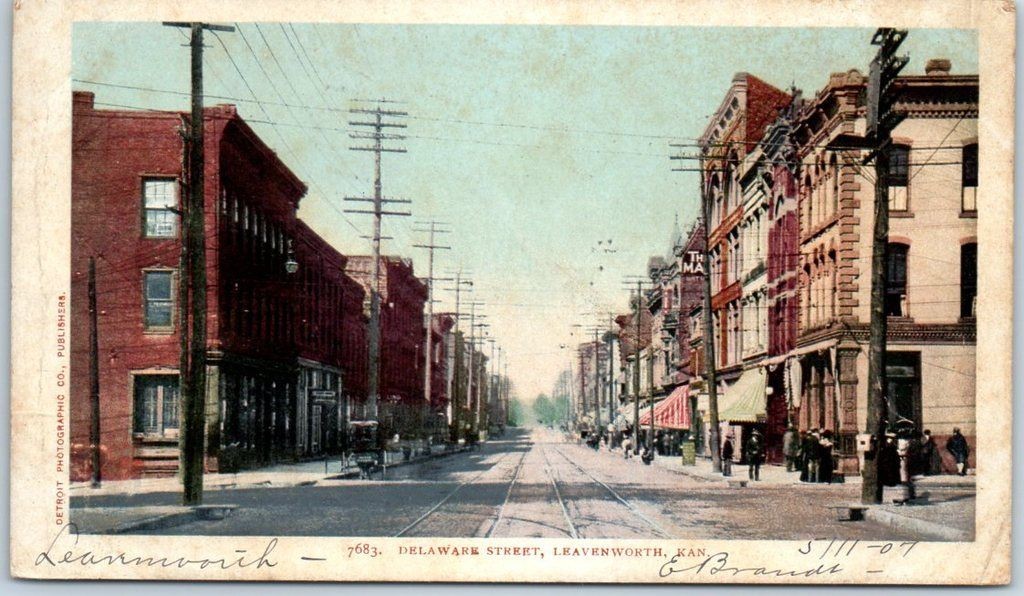My spouse Andrew Reach’s family were Jews in Leavenworth Kansas in 1850. By 1859 his family Jonas Wollman and Betty Kohn Wollman (1835-1927) and Andy’s great great grandmother Dora Wollman.
Lincoln comes To Leavenworth Kansas 1859
His family was aganist slavely very involved in the abolishionist movement. They rented the second floor space of one of their stores on Cherokee Streets to a anti slavery newspaper “The Territorial Register”, an early newspaper with anti slavery views. On the night of December 22, 1855, the newspaper was raided by the Kickapoo Rangers, a pro slavery quasi military group. They destroyed the newspaper. The federal Marshall service took them into protective custody. Three times they were detained by border ruffians and once Betty and her infant daughter were held for more than a day. On another occasion when Betty sensed an imminent raid, she and Rosa escaped in a rowboat to the town of Westin MO. Then in 1859 when Lincoln was running for president he made four speeches in Kansas, the 4th and most famous speech in Leavenworth Kansas. In December 1859 Lincoln spent 4 days in Leavenworth and visited the Wollman home. While their he cradled young Henry in his arms. This was widely reported in Newspapers. To say I was shocked that such a part of their history as a family could be forgotten is astonishing. The new book “Lincoln and the Jews” by Jonathan D. Sarna tells the story. Also there is a rare book written about the family titled “Decendants of Salomon Bloch of Janowitz, Bohemia, And Baruch Wollman of Kempen – Posen, Prussia” compiled by JOan Ferris Curran, certified genealogist for Henry Wollman Block, Andrew’s family, the Wollman’s, Reach’s, Negbauer’s and the Bloch’s (H&R Bloch accountants).They sold goods to the public and to the goverment. They made clothing, boots, saddles, and canvas for tents in the Civil War and for Covered Wagons that were heading west to name a few.
Leavenworth Kansas
Pike’s Peak Express Leavenworth Kansas
The following is excerpted From “Kansas Biographical Dictionary, 1879”:
Source Information
Ancestry.com. Kansas Biographical Dictionary, 1879 [database on-line]. Provo, UT, USA: Ancestry.com Operations Inc, 2004.
Original data: The United States Biographical Dictionary and Portrait Gallery of Eminent and Self-Made Men. Chicago and Kansas City, USA: S. Lewis, 1879.
JONAS WOLLMAN, one of the pioneers of Kansas and now the oldest dealer in clothing in the State, (that is, having been the longest time in the business), was born in Kempen-in-Posen, Prussia, October 2, 1824. His father, Wolf Wollman, was a merchant of some distinction in the town of his son’s nativity, and lived to the advanced age of ninety-six years, haveing been universally respected. His mother, whose maiden name was Rosa Kohn, was an estimable woman, of good education.
The subject of this sketch was well educated in his native place by private teachers, and studied theology, but on moving to America, in 1850, abandoned his intentions in regard to the pulpit, and entered into business in Albany, New York, where he remained until the spring of 1855, when he went to St. Louis. After remaining there about four months he removed to Kansas and located at Leavenworth, renting his first building from Hon. Mark W. Delahay, on the corner of Second and Cherokee, the the principal streets of the city. In 1858 he erected the first three-story brick building in the city, on Delaware, between Second and Third streets. As business changed, he changed his base of operations and removed to Delaware Street, corner of Fourth, and from there to the corner of Fifth, where he is now located.
In 1856 Mr. Wollman erected a fine residence near the corner of Fifth & Cherokee, west side, when the ground in all that region was covered with hazel brush, and there were no buildings near. In 1867 he erected a splendid residence on Osage, between Third and Fourth streets, which he has ornamented and made one of the most beautiful places in the city, still occupied by himself and family.
Mr. Wollman is a member of the Independent Order of Odd Felloows. He has generally been a Republican, but is now independent, voting for those whom he regards as the best men for political position.
He was married in St. Louis, August 2, 1855, to Miss Betty Kohn, daugther of the Rev. Herman Kohn, a distinguished divine of St. Louis. They have eight children living, whose names are given in the order of their ages – Rose, Henry, Morty, Essie, Willie, Katie, Beno and Lillie. The oldest son, Henry, is a graduate of the law department of Michigan University, was admitted to practice at the age of nineteen and a half years, and appointed deputy city attorney of Leavenworth, discharging the duties with efficiency and ability, and has already acquired a good practice at the Leavenworth bar – recognized as one of the ablest bars in the State. He is a young man of fine promise, occupying a high position. His oldest daugher, Miss Rose, has made marked progress in music, is a fine pianist, and young lady of great personal beauty. His entire family give good promise of future usefulness, and Mr. Wollman has one of the happiest homes in the city of his adoption, to the interests of which he has given a life of earnest devotion and honest industry as a business man.
From “Jonas and Betty (Kohn) Wollman and Their Descendants”, by Joan F. Curran, 1986:
Leavenworth Kansas
Jonas Wollman was born in 1824 in Kempen, Prussia. (Kempen is located forty miles northwest of Cologne in Germany). His father, Wolf Wollman, was a successful merchant in Kempen and lived to the age of 96. His mother, whose maiden name was Rosa Kohn, was “an estimable woman, of good education.”
Jonas was educated in Talmudic lore and in German and French studies, and planned to become a rabbi. However, with the political unrest in Prussia in the mid-1800s, he decided instead to start a new life in America. He sailed from Hamburg on May 16, 1851 as one of 384 passengers on the ship “Guttenburg”, and after a voyage of six weeks arrived in New York on July 1. On the New York passenger list he was described as a merchant.
On arrival in New York, Jonas went to Albany, where he opened a clothing store. In the spring of 1855, he traveled west to St. Louis, where he met Betty Kohn, daughter of Rabbi Herman Kohn and his wife Dora. Jonas and Betty were married in St. Louis in August, 1855. Betty was born in 1836 or 1838 in Bohemia and grew up in a small town near Pilsen (now part of Czechoslovakia). He father came to this country in 1850 or 1851, and Betty and other family members came the following year.
Shortyl after their marriage in 1855, Jonas and Betty moved to the new and growing town of Leavenworth in the recently opened Territory of Kansas. With a stock of merchandise for the store they planned to establish, they traveled by steamer up the Missouri River to Westport Landing in the City of Kansas (now Kansas City). From there they may have traveled the remaining thirty miles to Leavenworth by wagon, crossing by ferry either the Missouri of the Kansas River; or they may have continued on to Leavenworth by steamer. The complete trip took at least a week.
Leavenworth at the time had between 1,200 and 1,500 residents, and they were bitterly divided on the issue of slavery. The Wollmans, who were firm abolitionists, aroused the wrath of the pro-slavery forces when Jonas rented the loft over his store to the “Territorial Register”, an early newspaper with anti-slavery views. On the night of December 22, 1855, the newspaper was raided by a quasi-military group known as the Kickapoo Rangers, and the press was dumped into the Missouri River. In reporting the incident, the pro-slavery “Kansas Weekly Herald” made it appear that the “Register”, by publishing inflammatory articles, had brought about its well-deserved fate. While the U.S. marshall was making his investigation, Jonas and Betty were taken into protective custody. Three times they were detained by “border ruffians,” and once Betty and her infant daughter Rosa were held by them for more than a day. On another occasion, when Betty sensed an imminent raid, she and Rosa escaped in a rowboat to the town of Weston, Missouri. Still later, she saw her neighbor shot to death as he stood by his wife in their front doorway.
Amidst all the turmoil, Jonas was determined to become a U.S. citizen, and he filed his Declaration of Intent on February 6, 1856, at the Leavenworth County Courthouse. It is one of the earliest Declarations on record there. His final naturalization papers, dated May 15, 1858, were filed at the U.S. District Court in Topeka, and he became a registered voter in Leavenworth the following March.
In 1856 Jonas purchased land on Cherokee Street between Fifth and Sixth, where he built the family home. For his business, he rented property on Cherokee between Second and Third. In 1858, he built on Delaware Street (between Second and Third) the city’s first three-story brick building. Early Leavenworth city directories listed Jonas as a pawnbroker, but from 1862 on he was described as a clothier.
In the early days of his business, Jonas had as his partner Jacob Jereslaw. Like Jonas, Jacob was born in Kempen, Prussia in 1824. He came to this country in 1853 and to Leavenworth by early February 1856. He and Jonas filed their Declarations of Intent to become citizens on the same day – the third and fourth Declarations on record at the Leavenworth County Courthouse. Jacob’s marriage took place in the Wollman home, and in 1857 Jonas and Jacob formed a co-partnership in the firm of J. Wollman and Company – Jacob owning $2,000 more in the company than Jonas. In 1859 and 1860, they lived on the same side of the block on Cherokee between Fifth and Sixth, and when Jacob died in 1883, Jonas helped settle his estate. That they were born in Kempen in the same year, 1824, and were so closely associated in this country suggests that they had been friends since boyhood. They may even have been related.
The Wollmans were as active in the religious life of Leavenworth as they were in its community life. Early Jewish records have been destroyed by fire, but it is believed that the first Jewish congregation was established in 1855. A 1984 newspaper article suggests that it was organized in the home of the Wollmans. At an 1872 wedding, Jonas stated that Leavenworth’s first Jewish wedding as well as its first circumcision had taken place in his home. When a reform congregation was established in 1862, Jonas became its first vice president. He was one of the founders, and the first president, of the Society of the Sons of Truth, organized in 1858 to help the sick and to bury the dead. In 1859 he helped the Society purchase a large tract of land for a Jewish cemetery three miles outside of town.
By 1859 Leavenworth had grown to nearly 15,000 residents, and by 1860 it was reputed to be the largest city between St. Louis and San Francisco. In December, 1859, Abraham Lincoln spent four days in Leavenworth and had dinner at the Wollman home. While there, he cradled young Henry Wollman in his arms. Betty was impressed by Mr. Lincoln’s quiet and positive manner, and when he left she commented to her husband, “There is a great man, and I tell you that someday he will be President of the United States.” She repeated her prediction to others, but no one took her seriously.
During the Civil War, Jonas was a member of the Kansas State Militia. In 1861 he joined the Old Guards unit of the militia, which was called to active duty in 1864.
In 1868, Jonas built a brick home for his family on Osage Street between Fourth and Fifth, the family’s final home in Leavenworth. Eight of their children grew up there: Rosa, b. July 17, 1856; Henry, b. Aug. 9, 1858; Morton, b. Jan. 1, 1863; Etta, b. June 15, 1865; William Jonas, b. Sept. 28, 1867; Kate, b. Dec. 5, 1869; Benjamin Franklin, b. Jan. 20, 1872; and Lillian Daisy, b. April 6/18, 1875.
For both the 1900 and 1910 Censuses, Betty stated that she had nine children. A study of the Leavenworth Jewish cemetery records reveal that a Sarah Wollman, whose “kindred” was Jonas Wollman, died July 10, 1862. Although no age or date of birth was given, it is reasonable to assume (a) that Sarah was Jonas and Betty’s childe, and (b) based on the spacing of their other children, that she was born between Henry and Morton, probably 1860 or 1861.
Jonas had retired from the clothing business by 1888, and the following year the family moved to Kansas City where Jonas and Betty felt there would be more opportunities for their children. They chose the Quality Hill area of the city and lived first at 1021 Jefferson. The next year they rented a spacious home at 720 West 11th Street, which had been built two years earlier and which they subsequently purchased.
The year 1895 was a sad one for the Wollmans. Betty’s mother, Dora Kohn, died in January while on a visit to Kansas City from New York. Lillian Daisy, the youngest of Betty and Jonas’s children, died in May. Both were buried in Elmwood Cemetery.
Through his later years Jonas retained his interest in Hebrew, German, and French literature and until the time of his death was able to quote long passages from Goethe, Schiller and Shakespeare. He and Betty celebrated their 50th wedding anniversary in August 1905, just two months before his death on October 9. He was buried in Elmwood Cemetery with his daughter and mother-in-law.
In 1906, Betty, Benjamin, and Kate moved to New York City where Henry and William were arlready living. The family settled in a twenty-two-room apartment at 1 West 70th Steet (on a corner adjacent to Central Park), where relatives always enjoyed visiting. Leon Bloch (the husband of Betty’s granddaughter Hortense) told his sons of the morning he looked down from the apartment window to see limousines lined up in front of the building, and then watched as family members went out together and climbed into separate limousines. Betty Slegman (a great granddaughter of Betty Wollman remembers how intrigued she was that one of the rooms was used as a gymnasium. Tommy Hess (a great grandson) recalls that his family made regular Sunday morning visits to the apartment, and that his great grandmother would regale the children with stories of the family’s early life in Kansas, and would always give each child a lemon drop.
At 90, Betty helped select the model for the Pioneer Woman to be erected in Ponca City, Oklahoma. The model was selected from among twelve on display at the Reinhardt Galleries in New York. A two-column article in the “New York Times” written about this occasion described Betty herself as “a genuine pioneer woman.”
Henry paid fine tribute to his mother in a 1927 article in “The American Hebrew” magazine. He stated, “I really believe that my mother is the most wonderful woman in the world.” He went on to say, “Why, even today, now that we are mature men with established careers, none of us would ever think of taking an important step before first consulting mother… and she’s pretty generally right about things, too!” He felt that his mother had a lot to do with keeping the family members young and vigorous. “When one’s mother is a woman of ninety and as spry and mentally alert as the sharpest lawyer in the world,” he commented, “it would be hardly fitting that her sons sit back and grow old.”
Betty died December 25, 1927, and was buried in Salem Fields Cemetery in Brooklyn with her son Morton, who had died three years earlier. In her will dated June 1, 1920, she left her diamond-studded watch to her granddaughter Maude (Hess) Rothschild and her diamond cluster ring to her granddaughter Lotta Hess. She left a $10,000 trust her daughter Etta and the rest of her estate to her daughter Kate.
Four years after their mother’s death, Henry, William, and Kate moved from the West 70th Street apartment to a ten-room apartment on the forty-first floor of a newly completed Waldorf-Astoria Towers.
A portrait of Betty painted by Boris B. Gordon hands on a wall of the Kansas State Historical Society in Topeka. The plaque affixed to its frame reads:
BETTY WOLLMAN
1836 – 1927
One of Kansas’ Earliest Settlers
Abraham Lincoln Visited Her
Home at Leavenworth in 1859
From “The Kansas City Star” newspaper of October 10, 1905:
JONAS WOLLMAN DEAD
Pioneer Kansas Merchant Passes Away at Home in This City
Jonas Wollman, 82 years old, a retired merchant, formerly of Leavenworth, Kas., died yesterday morning at his home, 720 West Eleventh Street. Mr. Wollman went to Leavenworth in 1855, during the border wars, and his free state views were so strong that, at one time, he was driven from that city by the slave state party. He returned, however, and engaged in the merchandise business there. He remained in Leavenworth until fifteen years ago, when he retired from business and moved to this city.
Mr. Wollman was always active in charities and was president of some of the earliest organizations in Leavenworth, many of which still exist there. The greatest desire of Mr. Wollman’s life was to live long enough to celebrate his golden wedding anniversary. For the last two years he was practically bedridden, two trained nurses being always with him, and the physicians often told him that he would never live to see that, to him, sacred day.
But he did live to celebrate that day on August 2 last, and his physician attributes this to Mr. Wollman’s determination and great force of will power. Mr. Wollman was too ill at this time to celebrate his golden wedding anniversary in the ordinary way, and to please him his children made up a sum of money and distributed it among the various charities in this city and Leavenworth, without respect to creed.
Mr. Wollman is survived by a widow, 67 years old, three daughters and four sons. His sons are Henry Wollman, formerly of this city, but now of New York City, the attorney who instituted the United States shipbuilding case, which is the forerunner of all the investigations into corporation crookedness, of which the present insurance investigation is the legal result: William J. Wollman, of the firm of J. S. Bache & Co., Wall Street, New York, who had as much to do with the bringing about of the payment of the Cuban revolutionary debt as any other man; Benjamin F. Wollman, of this city, who holds one of the highest offices in the Mystic Shrine here; and Morton J. Wollman, the wholesale merchant also of this city. His daughters are Mrs. A. Hess, of Wichita, Kan.; Mrs. S. Bienenstok, of St. Louis, and Miss Kate Wollman of this city.
The funeral will be held from the home at 3 o’clock Wednesday afternoon. Rabbi Harry H. Mayer will officiate. Burial will be in the Jewish Cemetery here. (Elmwood). (BCM)
